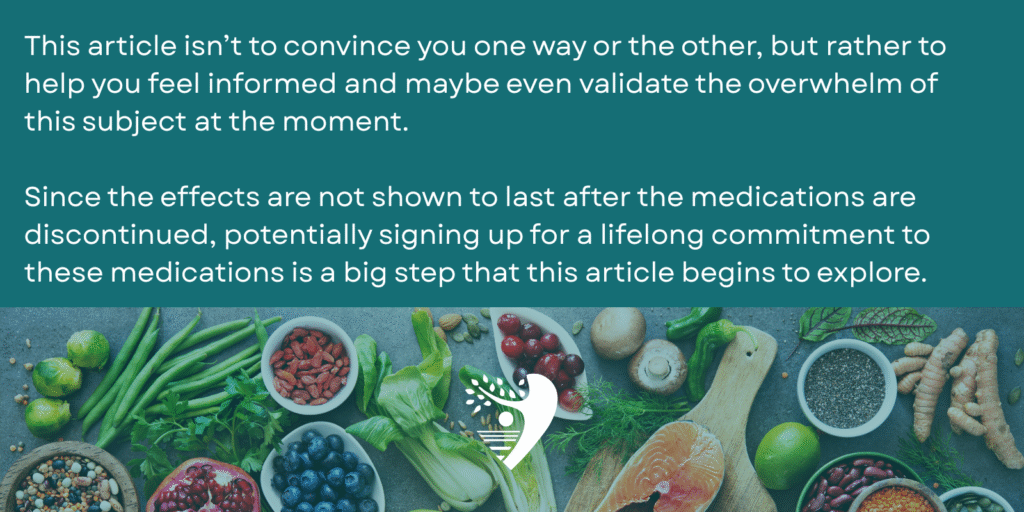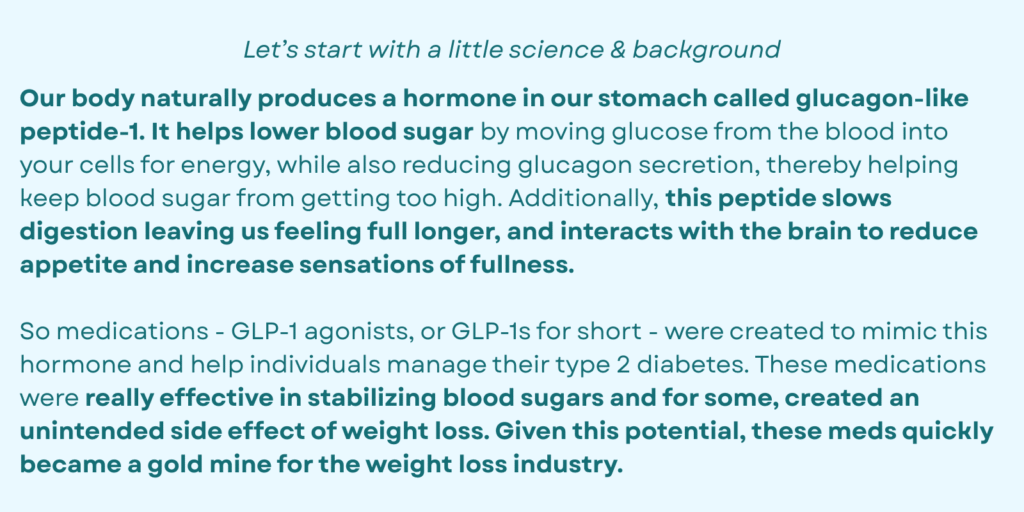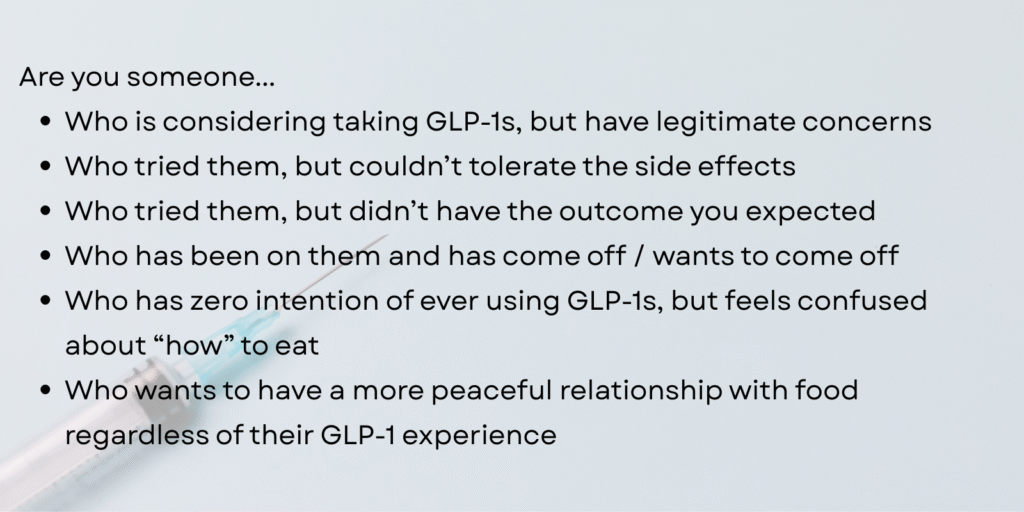It’s Just Not That Simple
What You Need to Know About GLP-1 Medications
By Christie Caggiani RDN/LDN, CEDS-C, CIEC Licensed Dietitian and Nutrition Therapist
Information and opinions about the new weight-loss drugs are more common than cute cats on TikTok. From social media to the nightly news to the coffee break crew at the office, we can’t go five minutes without hearing something about GLP-1 medications.
GLP-1s have demonstrated significant benefits for people with diabetes, and new research is showing some potential for lowering other health risks, including cardiovascular disease. But the center of everyone’s chatter usually centers around weight loss, and there are lots more questions than answers at this moment.

Aside from the major dent in your wallet, GLP-1s have many serious (and possibly long-term) negative consequences. Nearly 50% of patients in one study reported having at least one uncomfortable symptom.
The side effects are real – annoying at best and debilitating at worst – and can include nausea, diarrhea, cramps and abdominal pain, constipation, vomiting, gastroesophageal reflux, gastroenteritis, pancreatitis, gastroparesis, intestinal obstruction, gall bladder disease, headaches and potential risk for certain types of thyroid and endocrine cancers, among other adverse effects.
- There’s a great risk of muscle loss and malnutrition
- They can interfere with the absorption of other meds, including psychiatric meds
- Some people won’t lose any weight at all
- Most people will regain weight after they discontinue use (as is the case with any diet)
- There’s limited long term research and a whole bunch of misinformation
- They can alter taste perception and decrease the enjoyment of eating

So we know they can help with diabetes, there’s a long list of risks and more we don’t know, and at the same time some people have found GLP-1s offer the potential to re-connect with internal signals and eventually help build body trust. They may give individuals the opportunity to tune into and work with pleasant and uncomfortable emotions that may have been avoided if they were using food for emotional coping.
So what’s right / what’s wrong?
Navigating this world of GLP-1s is, in my opinion, very nuanced. There’s no blanket right or wrong. There’s no perfect answer to navigating this new class of medication.
But I do wholeheartedly believe everyone deserves to have the chance to create and foster a peaceful and joyful relationship with food and to live in their body with gratitude, appreciation and ease.

If you find yourself relating to any of these descriptors above, Intuitive Nourishment might be just the place for you to land.
This 8-week course can help you reconnect with your innate wisdom that can guide you toward a sustainable, joyful way of nourishing yourself. Stepping away from diet culture and healing your food and body relationship from the inside out can be one of the most rewarding and freeing gifts you could give yourself.
Maybe these meds have been helpful for you – this course can deepen your connection.
Maybe these meds have been a nightmare and you’re feeling more confused than ever.
I believe you can feel better.
Regardless of your story, you deserve to have a supportive and positive relationship with your food and body. Eating can become something you experience from a place of connection and satisfaction, not laden with guilt and shame. This course can move you to a place of truly listening, honoring and trusting yourself and your body – maybe for the first time in a long time.
